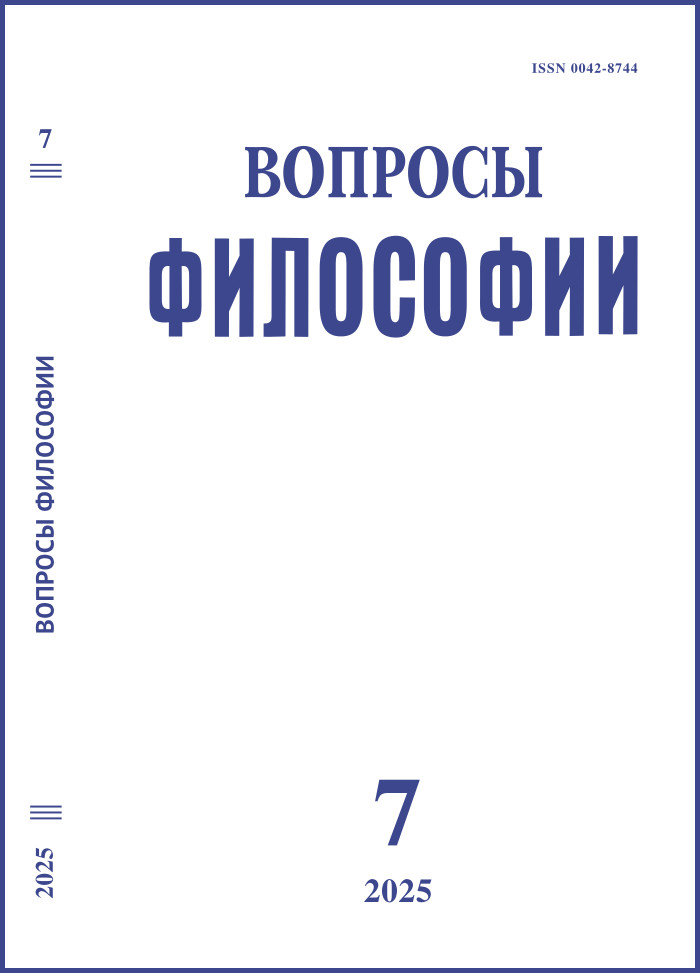To Live or Not to Live: Answers from F. Bacon and I. Kant
DOI:
https://doi.org/10.21146/0042-8744-2025-7-86-96Keywords:
euthanasia, life extension, power over nature, humanism, autonomy of willAbstract
The aim of this article is to discover and clarify the connection between technological life extension and euthanasia. First, the conditions under which euthanasia may result from technological life extension are described. Next, a paradigm is defined within which these practices can be viewed as complementary. To explain the specificity of the paradigm, two new European strategies for understanding what it means to exercise power over nature are considered. The first strategy is F. Bacon’s view of euthanasia and life extension as a service to nature for the prosperity and painlessness of the organism. The second strategy is I. Kant’s view of life extension as control over natural inclinations, regulation of their strength to achieve the goals of reason, and the view of euthanasia as a renunciation of such power. The acceptability and appropriateness of using various strategies for assessing euthanasia that emerged in the New Age are examined to develop an ethical assessment of euthanasia and technological life extension in modern times.

